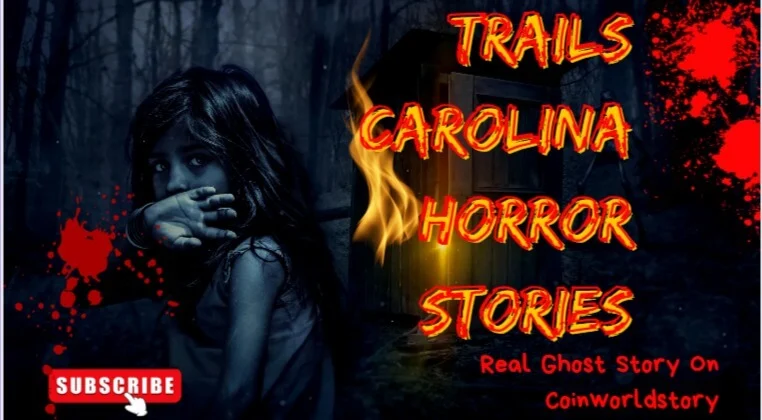Trails Carolina Horror Stories: Separating Fact from Fiction
Trails Carolina Horror Stories, a wilderness therapy program, has been in the spotlight over the years, sparking curiosity and concern among parents and the public alike. While some individuals have praised the program for its therapeutic approach and positive outcomes, others have raised alarm bells by sharing what they perceive as “horror stories” from their experience. In this article, we will examine the controversies surrounding Trails Carolina, explore both sides of the narrative, and attempt to separate fact from fiction.
Understanding Trails Carolina:
Trails Carolina is a wilderness therapy program designed to help struggling teenagers and young adults who may be dealing with issues such as substance abuse, behavioral challenges, academic difficulties, or mental health concerns. The program takes participants into the wilderness, where they engage in outdoor activities, therapy sessions, and experiential learning to build life skills, self-awareness, and personal growth.

The Positive Perspective:
Supporters of Trails Carolina often highlight the program’s therapeutic approach and its potential for transformation. They claim that the wilderness setting provides a unique and immersive environment for participants to break away from distractions and negative influences, allowing them to focus on personal development.
Proponents of the program argue that the structured activities, outdoor challenges, and individual and group therapy sessions can be highly beneficial for teenagers and young adults struggling with emotional and behavioral issues. Many parents report positive changes in their children after participating in Trails Carolina, such as improved communication, enhanced problem-solving skills, and increased self-esteem.
The Negative Narratives:
On the other hand, there are individuals who have shared negative experiences or “horror stories” related to Trails Carolina. These stories often involve allegations of mistreatment, harsh disciplinary practices, and inadequate supervision. Some critics claim that participants were subjected to long hikes without adequate food, shaming or humiliation, and isolation from their families.
Additionally, there have been concerns raised about the lack of regulation in the wilderness therapy industry, which could potentially put vulnerable participants at risk.

Separating Fact from Fiction:
When evaluating the claims and counterclaims surrounding Trails Carolina, it is crucial to recognize that individual experiences can vary widely. While some participants and their families have found immense value in the program, others may have faced challenges or negative outcomes.
It is essential to consider various factors that can influence a person’s experience, including the specific circumstances of the participant, the effectiveness of the therapeutic approach for their needs, and the quality of staff and supervision at the program.
must read
Streamline Your Business Processes with Workforce Management Software
Transparency and Safety:
One key takeaway from the debates surrounding Trails Carolina is the importance of transparency and safety in wilderness therapy programs. Parents and participants should thoroughly research any program they are considering, asking questions about the qualifications of staff, the program’s therapeutic approach, safety protocols, and the level of supervision provided.
Additionally, parents should seek feedback from multiple sources, including reviews from former participants and their families, to gain a more comprehensive understanding of the program’s strengths and weaknesses.

Regulation and Oversight:
To address concerns related to the wilderness therapy industry, advocates have called for increased regulation and oversight. Proper licensing, adherence to best practices, and regular inspections can help ensure the safety and well-being of participants.
FAQ
- What are “Trails Carolina Horror Stories“?
“Trails Carolina Horror Stories” refers to negative accounts or experiences that some individuals have shared about their time or their loved ones’ participation in the wilderness therapy program called Trails Carolina.
- What is Trails Carolina?
Trails Carolina is a wilderness therapy program that aims to help troubled teenagers and young adults by immersing them in the wilderness setting. The program combines outdoor activities, therapy sessions, and experiential learning to promote personal growth and development.
- What are the positive aspects of Trails Carolina?
Supporters of Trails Carolina highlight its therapeutic approach and potential for positive transformation. They emphasize the immersive wilderness environment, structured activities, and individual and group therapy sessions as beneficial for participants dealing with emotional and behavioral challenges.
- What are the negative accounts associated with Trails Carolina?
Some individuals have shared negative experiences related to Trails Carolina, including allegations of mistreatment, harsh disciplinary practices, inadequate supervision, and isolation from families.
- Are all experiences at Trails Carolina negative?
No, experiences at Trails Carolina can vary widely from person to person. While some participants and their families have reported positive outcomes, others have faced challenges or expressed negative views of their time in the program.
Conclusion:
Trails Carolina, like many wilderness therapy programs, has elicited mixed reactions from those who have experienced it firsthand or had loved ones participate. While some individuals credit the program with positive life changes and personal growth, others have voiced concerns about potential mistreatment or negative experiences.
When considering any wilderness therapy program, it is crucial for parents and potential participants to conduct thorough research, ask questions, and seek out reputable programs with strong safety measures and experienced staff.
The goal is to find a program that aligns with the specific needs and preferences of the participant while prioritizing their well-being and safety throughout their journey of growth and self-discovery.




